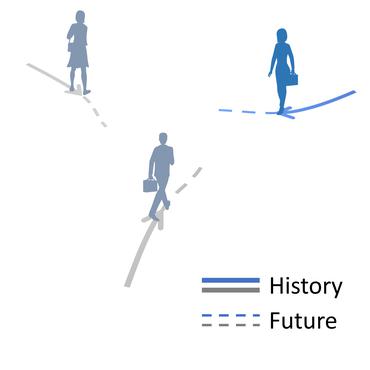Search Results for author: Jeevana Priya Inala
Found 12 papers, 9 papers with code
Rethinking Interpretability in the Era of Large Language Models
1 code implementation • 30 Jan 2024 • Chandan Singh, Jeevana Priya Inala, Michel Galley, Rich Caruana, Jianfeng Gao
We highlight two emerging research priorities for LLM interpretation: using LLMs to directly analyze new datasets and to generate interactive explanations.
Is Self-Repair a Silver Bullet for Code Generation?
1 code implementation • 16 Jun 2023 • Theo X. Olausson, Jeevana Priya Inala, Chenglong Wang, Jianfeng Gao, Armando Solar-Lezama
We hypothesize that this is because self-repair is bottlenecked by the model's ability to provide feedback on its own code; using a stronger model to artificially boost the quality of the feedback, we observe substantially larger performance gains.
CodeExp: Explanatory Code Document Generation
1 code implementation • 25 Nov 2022 • Haotian Cui, Chenglong Wang, JunJie Huang, Jeevana Priya Inala, Todd Mytkowicz, Bo wang, Jianfeng Gao, Nan Duan
Our experiments show that (1) our refined training dataset lets models achieve better performance in the explanation generation tasks compared to larger unrefined data (15x larger), and (2) fine-tuned models can generate well-structured long docstrings comparable to human-written ones.
Execution-based Evaluation for Data Science Code Generation Models
1 code implementation • 17 Nov 2022 • JunJie Huang, Chenglong Wang, Jipeng Zhang, Cong Yan, Haotian Cui, Jeevana Priya Inala, Colin Clement, Nan Duan, Jianfeng Gao
Code generation models can benefit data scientists' productivity by automatically generating code from context and text descriptions.
Interactive Code Generation via Test-Driven User-Intent Formalization
no code implementations • 11 Aug 2022 • Shuvendu K. Lahiri, Sarah Fakhoury, Aaditya Naik, Georgios Sakkas, Saikat Chakraborty, Madanlal Musuvathi, Piali Choudhury, Curtis von Veh, Jeevana Priya Inala, Chenglong Wang, Jianfeng Gao
Large language models (LLMs) have shown great potential in automating significant aspects of coding by producing natural code from informal natural language (NL) intent.
Fault-Aware Neural Code Rankers
1 code implementation • 4 Jun 2022 • Jeevana Priya Inala, Chenglong Wang, Mei Yang, Andres Codas, Mark Encarnación, Shuvendu K Lahiri, Madanlal Musuvathi, Jianfeng Gao
Large language models (LLMs) have demonstrated an impressive ability to generate code for various programming tasks.
Learning Math Reasoning from Self-Sampled Correct and Partially-Correct Solutions
1 code implementation • 28 May 2022 • Ansong Ni, Jeevana Priya Inala, Chenglong Wang, Oleksandr Polozov, Christopher Meek, Dragomir Radev, Jianfeng Gao
We show that our use of self-sampled correct and partially-correct solutions can benefit learning and help guide the sampling process, leading to more efficient exploration of the solution space.
 Ranked #138 on
Arithmetic Reasoning
on GSM8K
Ranked #138 on
Arithmetic Reasoning
on GSM8K
Program Synthesis Guided Reinforcement Learning for Partially Observed Environments
1 code implementation • NeurIPS 2021 • Yichen David Yang, Jeevana Priya Inala, Osbert Bastani, Yewen Pu, Armando Solar-Lezama, Martin Rinard
Our results demonstrate that our approach can obtain the benefits of program-guided reinforcement learning without requiring the user to provide a new guiding program for every new task.
Neurosymbolic Transformers for Multi-Agent Communication
1 code implementation • NeurIPS 2020 • Jeevana Priya Inala, Yichen Yang, James Paulos, Yewen Pu, Osbert Bastani, Vijay Kumar, Martin Rinard, Armando Solar-Lezama
We study the problem of inferring communication structures that can solve cooperative multi-agent planning problems while minimizing the amount of communication.
Likelihood-Based Diverse Sampling for Trajectory Forecasting
1 code implementation • ICCV 2021 • Yecheng Jason Ma, Jeevana Priya Inala, Dinesh Jayaraman, Osbert Bastani
We propose Likelihood-Based Diverse Sampling (LDS), a method for improving the quality and the diversity of trajectory samples from a pre-trained flow model.
Synthesizing Programmatic Policies that Inductively Generalize
no code implementations • ICLR 2020 • Jeevana Priya Inala, Osbert Bastani, Zenna Tavares, Armando Solar-Lezama
We show that our algorithm can be used to learn policies that inductively generalize to novel environments, whereas traditional neural network policies fail to do so.
REAS: Combining Numerical Optimization with SAT Solving
no code implementations • 13 Feb 2018 • Jeevana Priya Inala, Sicun Gao, Soonho Kong, Armando Solar-Lezama
In this paper, we present ReaS, a technique that combines numerical optimization with SAT solving to synthesize unknowns in a program that involves discrete and floating point computation.



